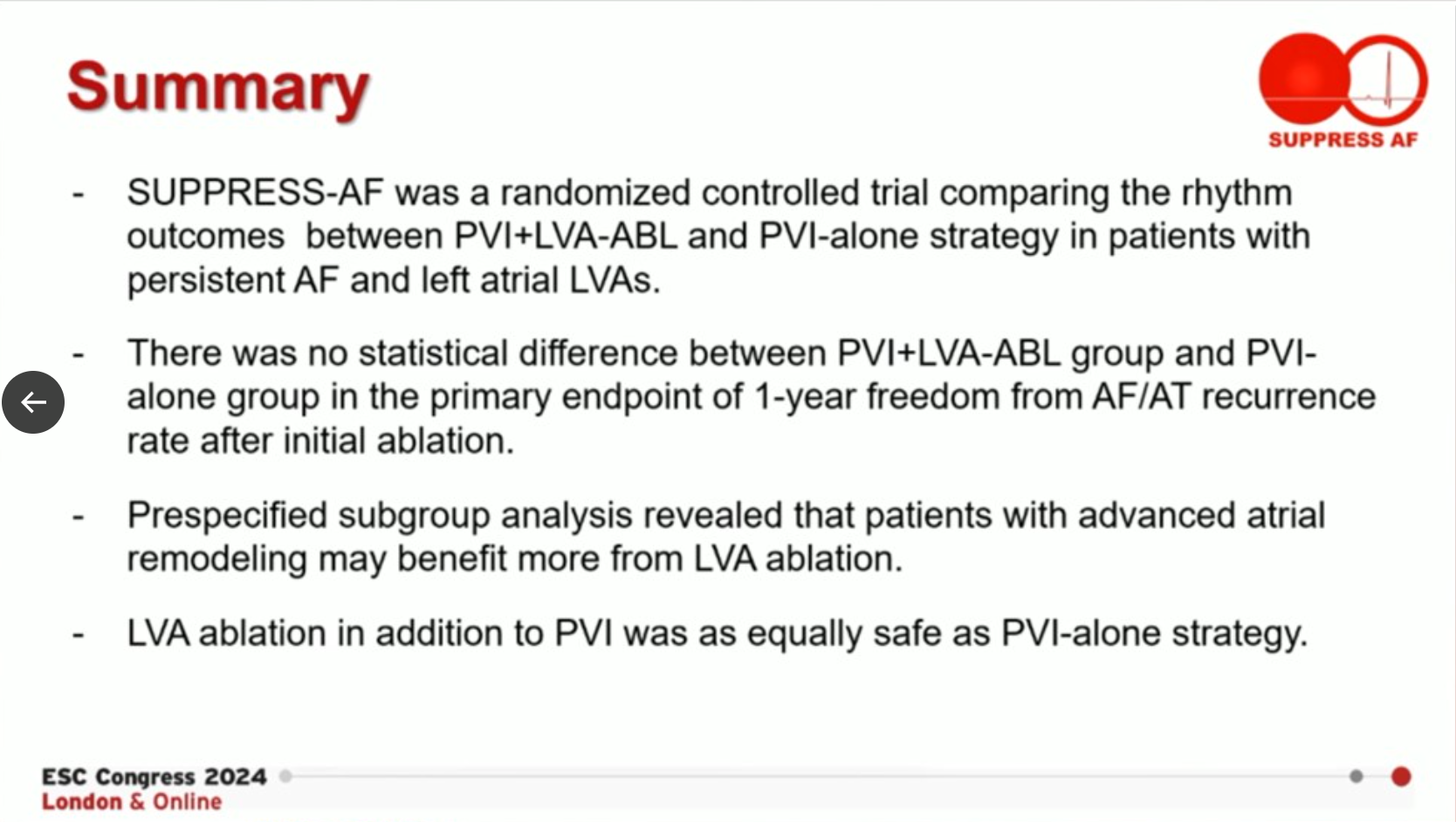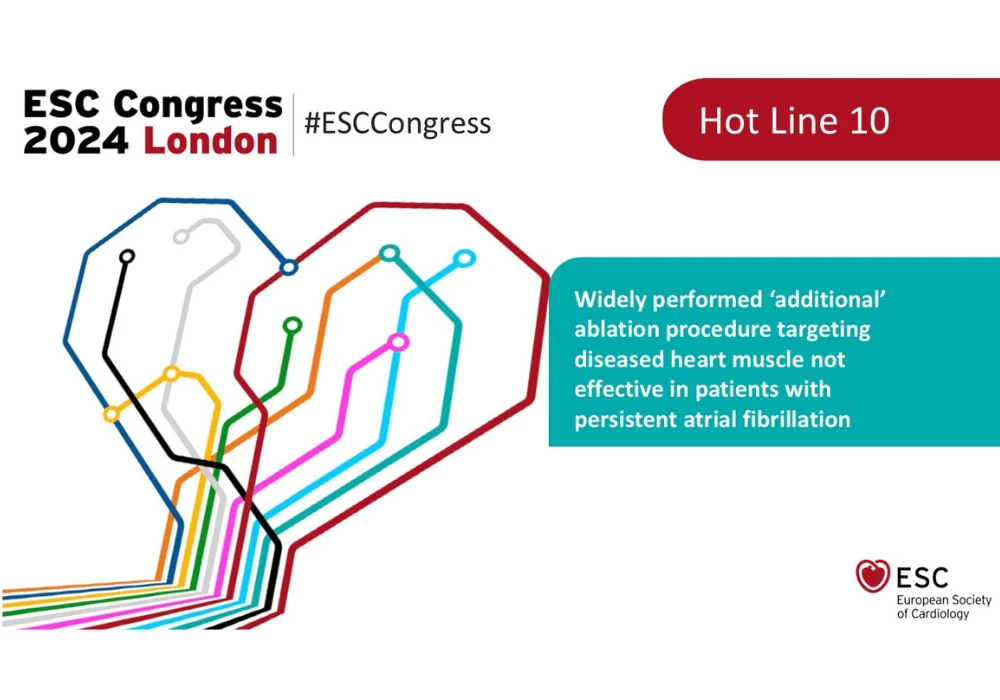A study presented at the ESC Congress reveals that performing additional catheter ablations targeting diseased myocardium, alongside the standard pulmonary vein isolation (PVI) approach, does not enhance freedom from arrhythmias at one year for patients with persistent atrial fibrillation (AF). However, a subgroup of patients with left atrium enlargement saw a 40% reduction in AF recurrence with additional low-voltage-area ablation.
The SUPPRESS-AF trial enrolled 1,347 patients with persistent AF undergoing their first ablation across eight cardiovascular centres in Japan. Of these, 343 patients had left atrial LVAs and were randomised to receive either PVI alone or PVI with added LVA ablation.
Results showed no significant difference in recurrence rates of AF and atrial tachycardia at one year between the groups, whether or not antiarrhythmic drugs were used. However, in patients with left atrial enlargement (≥45 mm), LVA ablation reduced recurrence by 40%. The rate of serious complications, including stroke, was similarly low in both groups.

These findings suggest that routine ablation targeting diseased myocardium beyond standard PVI should be limited to advanced left atrial enlargement cases.
Adding further ablation of low-voltage areas did not reduce AF recurrence at one year in the overall cohort but showed promise in patients with advanced left atrial enlargement, which affects about half of those with persistent AF. These results may shift current practice towards shorter, more effective PVI alone, without additional ablations, though further research is needed to refine patient selection and improve outcomes of supplementary ablations.
AF disrupts the heart's electrical signals, potentially leading to blood clots and stroke. When medications fail, catheter ablation creates scar tissue to prevent abnormal rhythms. The standard PVI ablation targets the pulmonary veins but has high recurrence rates in persistent AF, where no additional ablation strategy is established. Low-voltage-area (LVA) ablation is often performed despite uncertain efficacy.
Routine addition of ablation targeting diseased myocardium is not recommended; it should be reserved for advanced atrial remodelling. Future research should focus on improving this procedure for patients with persistent AF.
Source, Slide and Image Credit: ESC Congress 2024






